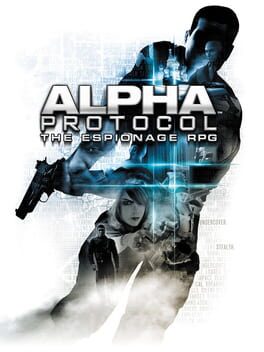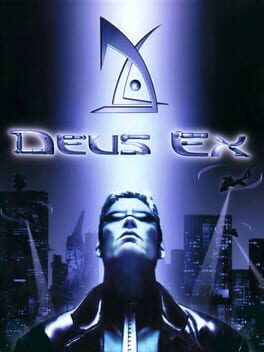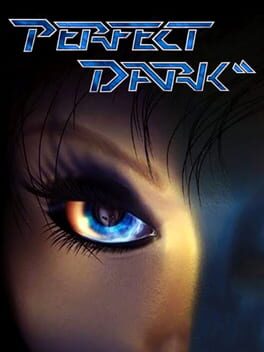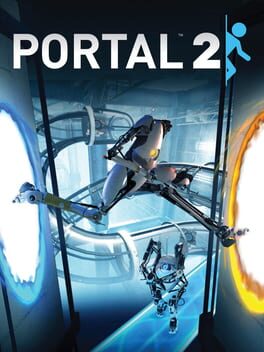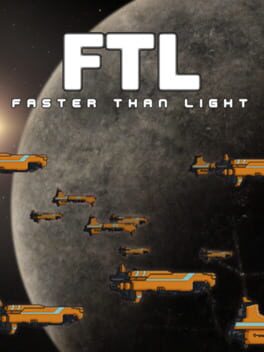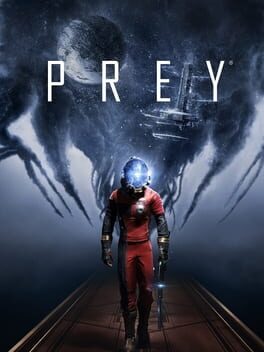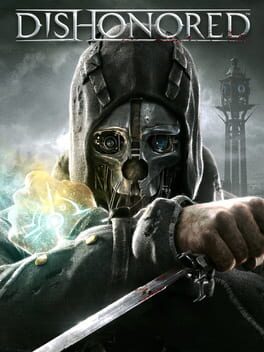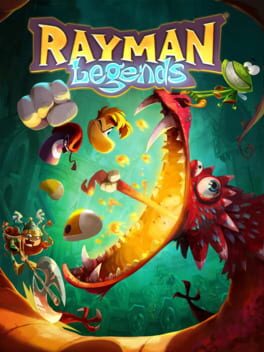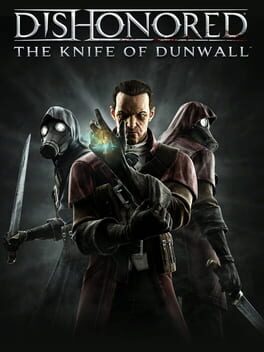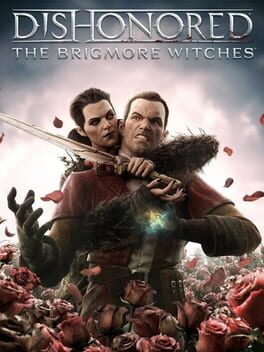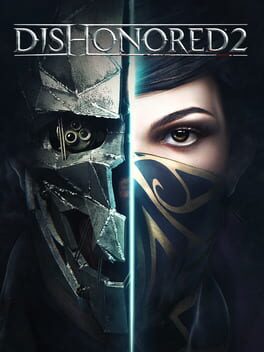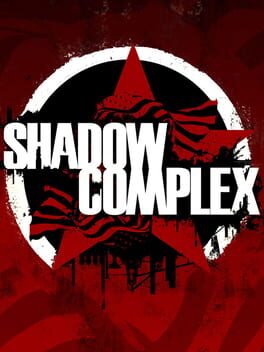synthezoid
2019
"Welcome to corporate America."
It's been a long time since I've found the motivation to replay a game's story mode--games are often long, life is often busy, and my backlog is growing faster than I can shrink it. But this game's second run system which turns your understanding of the game world inside out by sending you through it in a different way while telling a new (but connected) story within it tipped me over the edge. I beat it on my first run about a week prior, took some time off to beat Resident Evil 4 (a masterpiece in its own right), then came right back to this. I'm working through my second run, Claire's B campaign, on Hardcore mode this time, and it is intense, difficult, and even more terrifying than last time. I love it.
It takes all the strengths of classic Resident Evil, (the interconnected, puzzle-littered hallways of the police station will feel familiar to anyone who has braved Resident Evil 1 Remake's mansion--have you? It's also an incredible game!) but anything that might have even verged on tedious is cleaned up; the map marks rooms with things left to find and unsolved puzzles instead of asking you to memorize them, write them down or wander aimlessly. While the beautiful, cinematic fixed camera angles of that game will be missed, the crisp control of Leon and Claire's shooting and the increased action allowed in boss fights or more dramatic enemy encounters as a result of the over-the-shoulder camera feels like the full realization of what classic Resident Evil merely evoked with its more simplistic fights.
And the scares! It's not the most terrifying game ever made, but man is it tense. Mr. X has had volumes written about him, so I won't belabor the point, but he'll get his moments over you, as will many other enemies, sooner or later. I hope I never have to hear a set of loud footsteps approaching when I'm out at night. There's always just the right amount of ammo to make it possible to get around enemies but impossible to actually kill more than a few at a time. This combined with the ever evolving layout and paths around the station makes it an uneasy but immensely rewarding task to venture out of your save room.
This core gameplay loop of exploration, infrequent combat, and the occasional bombastic, brilliant, satisfying boss fight before the eventual return to peace makes it downright addicting for the ~8 hour length of your first campaign. It's tight and utterly devoid of chaff, and this is what makes the prospect of a second run with some changes so appealing--it's simultaneously satisfying and leaves you wanting more of it. That, to me, is the mark of a perfectly paced game, and the character switch takes such smart advantage of it that I wish more games focused on being concise, well-crafted, and replayable instead of big, big, big. The characters themselves are both easy to get attached to, too, and they each have their own arcs with a few unique supporting characters. Leon is immensely relatable, always seeming to say what I'm thinking, and Claire is both believable and likable as the unlikely hero of her story.
That's not to say it takes itself seriously all the time, of course. It's impossible for Resident Evil to totally shake off its B-movie charm, even with the insane production values of a game like this. The nine-foot-tall Mr. X dresses in a fedora and trench coat to blend in, for one. It could never avoid being hilarious. It's just that, like some of the best classic low-budget horror films (Evil Dead 1 comes to mind), this doesn't get in the way of its thrills, scares, or story. The gradual amping-up of the stakes and scope doesn't feel like a cheap or formulaic escalation, but a necessary and satisfying payoff. The narrative is just as gripping as any other part of the game, and every part of it gripped me tighter than an angry Tyrant. It's rare that a game comes out which is simultaneously so focused and so crowdpleasing, so tough and so well-designed, so highly-produced and still so passionately made. It's been so long since I loved a game quite this much, but then again, it's been a long time since I played a game quite this good.
It's been a long time since I've found the motivation to replay a game's story mode--games are often long, life is often busy, and my backlog is growing faster than I can shrink it. But this game's second run system which turns your understanding of the game world inside out by sending you through it in a different way while telling a new (but connected) story within it tipped me over the edge. I beat it on my first run about a week prior, took some time off to beat Resident Evil 4 (a masterpiece in its own right), then came right back to this. I'm working through my second run, Claire's B campaign, on Hardcore mode this time, and it is intense, difficult, and even more terrifying than last time. I love it.
It takes all the strengths of classic Resident Evil, (the interconnected, puzzle-littered hallways of the police station will feel familiar to anyone who has braved Resident Evil 1 Remake's mansion--have you? It's also an incredible game!) but anything that might have even verged on tedious is cleaned up; the map marks rooms with things left to find and unsolved puzzles instead of asking you to memorize them, write them down or wander aimlessly. While the beautiful, cinematic fixed camera angles of that game will be missed, the crisp control of Leon and Claire's shooting and the increased action allowed in boss fights or more dramatic enemy encounters as a result of the over-the-shoulder camera feels like the full realization of what classic Resident Evil merely evoked with its more simplistic fights.
And the scares! It's not the most terrifying game ever made, but man is it tense. Mr. X has had volumes written about him, so I won't belabor the point, but he'll get his moments over you, as will many other enemies, sooner or later. I hope I never have to hear a set of loud footsteps approaching when I'm out at night. There's always just the right amount of ammo to make it possible to get around enemies but impossible to actually kill more than a few at a time. This combined with the ever evolving layout and paths around the station makes it an uneasy but immensely rewarding task to venture out of your save room.
This core gameplay loop of exploration, infrequent combat, and the occasional bombastic, brilliant, satisfying boss fight before the eventual return to peace makes it downright addicting for the ~8 hour length of your first campaign. It's tight and utterly devoid of chaff, and this is what makes the prospect of a second run with some changes so appealing--it's simultaneously satisfying and leaves you wanting more of it. That, to me, is the mark of a perfectly paced game, and the character switch takes such smart advantage of it that I wish more games focused on being concise, well-crafted, and replayable instead of big, big, big. The characters themselves are both easy to get attached to, too, and they each have their own arcs with a few unique supporting characters. Leon is immensely relatable, always seeming to say what I'm thinking, and Claire is both believable and likable as the unlikely hero of her story.
That's not to say it takes itself seriously all the time, of course. It's impossible for Resident Evil to totally shake off its B-movie charm, even with the insane production values of a game like this. The nine-foot-tall Mr. X dresses in a fedora and trench coat to blend in, for one. It could never avoid being hilarious. It's just that, like some of the best classic low-budget horror films (Evil Dead 1 comes to mind), this doesn't get in the way of its thrills, scares, or story. The gradual amping-up of the stakes and scope doesn't feel like a cheap or formulaic escalation, but a necessary and satisfying payoff. The narrative is just as gripping as any other part of the game, and every part of it gripped me tighter than an angry Tyrant. It's rare that a game comes out which is simultaneously so focused and so crowdpleasing, so tough and so well-designed, so highly-produced and still so passionately made. It's been so long since I loved a game quite this much, but then again, it's been a long time since I played a game quite this good.
2010
2000
Hong Kong is one of the best levels I've ever encountered in any game, ever.
The rest of Deus Ex is all just as strong, too.
My non-lethal run started out as a teeth-pulling, save-scumming stealth game (still fun, even if a bit basic and slow as such) and gradually evolved into ballistic-armoring, speed-boosting, and occasionally straight up invis-walking past enemies. The progression that the augmentations afford is incredible and empowering, but never so strong that one approach feels obviously superior--a tough proposition even among the best immersive sims. Admittedly, if you're not feeling creative, some newer Arkane games occasionally run into this thanks to the omnipresent strength of blinking around. System Shock 2, while a master class in atmosphere, doesn't really have that many viable playstyles. Thief is an incredible stealth game, and I love it for that, but Deus Ex director Warren Spector had bigger ideas: he wished you didn't have to play Thief as a stealth game in the first place. Deus Ex is the first great, even masterful execution of that idea.
Another thing that is striking about Deus Ex, even to this day: almost all of the meaningful choices in the game, where possible, are presented through mechanics, systems, and open-ended situations rather than menus, text boxes, or button prompts. Want to kill or spare a character? Just do it. (It might not be easy, but that only makes it more immersive.) Want to avoid learning the passcode to this door? Stack some boxes to climb into the window. Or do whatever else you want. Only you can judge yourself. Try to stick to the approach you feel is right, or experiment wildly. It's all here. It's all tight, atmospheric, and--as clunky as the stealth, shooting, and AI can seem--it all works together as a brilliant clockwork contraption of mechanics, simulation, and downright satisfying game design.
0451/10
The rest of Deus Ex is all just as strong, too.
My non-lethal run started out as a teeth-pulling, save-scumming stealth game (still fun, even if a bit basic and slow as such) and gradually evolved into ballistic-armoring, speed-boosting, and occasionally straight up invis-walking past enemies. The progression that the augmentations afford is incredible and empowering, but never so strong that one approach feels obviously superior--a tough proposition even among the best immersive sims. Admittedly, if you're not feeling creative, some newer Arkane games occasionally run into this thanks to the omnipresent strength of blinking around. System Shock 2, while a master class in atmosphere, doesn't really have that many viable playstyles. Thief is an incredible stealth game, and I love it for that, but Deus Ex director Warren Spector had bigger ideas: he wished you didn't have to play Thief as a stealth game in the first place. Deus Ex is the first great, even masterful execution of that idea.
Another thing that is striking about Deus Ex, even to this day: almost all of the meaningful choices in the game, where possible, are presented through mechanics, systems, and open-ended situations rather than menus, text boxes, or button prompts. Want to kill or spare a character? Just do it. (It might not be easy, but that only makes it more immersive.) Want to avoid learning the passcode to this door? Stack some boxes to climb into the window. Or do whatever else you want. Only you can judge yourself. Try to stick to the approach you feel is right, or experiment wildly. It's all here. It's all tight, atmospheric, and--as clunky as the stealth, shooting, and AI can seem--it all works together as a brilliant clockwork contraption of mechanics, simulation, and downright satisfying game design.
0451/10
2000
2007
2011
Moody, tactical, challenging, intense, deep, addicting, punishing, rewarding, downright dopaminergic, and impossibly, unbelievably entrancing.
When I started playing FTL, I was too stubborn to try Easy mode; I appreciate a good, fair challenge. Countless runs and dozens of hours later, I beat the game for the first time on Normal and achieved what I can only describe as my greatest victory in a video game. Between the clean, minimal visuals, the astonishingly atmospheric soundtrack by Ben Prunty, and the alternately cruel and magical narrative arc the game procedurally puts you through every time, FTL is the most immersive spacefaring game I've ever played. I really do feel like I'm lost in a hostile galaxy every single time. So, when I clawed my first victory out of the wreckage of the Rebel flagship, it didn't just feel like I had beaten a video game. It felt like I had won a war.
When I started playing FTL, I was too stubborn to try Easy mode; I appreciate a good, fair challenge. Countless runs and dozens of hours later, I beat the game for the first time on Normal and achieved what I can only describe as my greatest victory in a video game. Between the clean, minimal visuals, the astonishingly atmospheric soundtrack by Ben Prunty, and the alternately cruel and magical narrative arc the game procedurally puts you through every time, FTL is the most immersive spacefaring game I've ever played. I really do feel like I'm lost in a hostile galaxy every single time. So, when I clawed my first victory out of the wreckage of the Rebel flagship, it didn't just feel like I had beaten a video game. It felt like I had won a war.
2017
2012
Arkane's breakout title is a rock-solid immersive sim with a few novel ideas but an overly simplistic view of how to integrate those to offer a myriad of solutions to problems. Coming off of Dark Messiah of Might and Magic, which is a stellar fantasy murder simulator but not an amazing stealth game, it's easy to see how aiming to make their own superpowered take on Thief could have gone awry. Perhaps they were still finding their footing, though, since this game's success turned out to be a sign of good things to come from Arkane. Still, Thief, Deus Ex, or even their own smashing success Prey this is not.
Instead, most problems have a straightforward handful of meaningfully different answers--still more than most games, but the limited selection of abilities and the painfully binary moral choices keep it from the creativity and emergent solutions offered by the best of the genre. The bone charms are a nice idea--mainly stat-based bonuses that reward you for exploring, in contrast to the whole new abilities runes unlock, but so few of them are actually interesting or useful that they don't always feel rewarding to hunt down, particularly when it turns out they have nothing to do with your playstyle. If, instead, they were currency to upgrade your stats (much like runes are for your powers) then they'd both be more flexible and more useful. (Alternately, the system used in the DLC and sequel works fine, where some of them are stronger with drawbacks.) If you're going for a nonlethal run, this will feel even more restrictive, since over half the abilities and charms will simply be non-options most of the time.
A few levels have just-out-of-reach ledges and rooftops blocked by invisible walls which should seemingly be accessible with your blink and enhanced jump, which is highly disappointing to come across in a game like this, though luckily not for very long, since the levels are otherwise full of alternate paths. Still, this combined with the incessant tutorials reminding you "hey, there's more than one way to approach this!" for the first three or four levels serves to make it feel more railroaded than it may actually be--like the developers already thought of and scripted in whatever approach you're taking rather than thinking of it yourself. I mean, of course they did, but I don't want to feel like it.
Still, highly effective level design and the plain fun of what IS there in its toolset, along with a striking art style that has aged better than most late-console-generation games of its time, help make it fun the whole way through, and the crisp pacing makes it brisk enough to play through to completion.
Instead, most problems have a straightforward handful of meaningfully different answers--still more than most games, but the limited selection of abilities and the painfully binary moral choices keep it from the creativity and emergent solutions offered by the best of the genre. The bone charms are a nice idea--mainly stat-based bonuses that reward you for exploring, in contrast to the whole new abilities runes unlock, but so few of them are actually interesting or useful that they don't always feel rewarding to hunt down, particularly when it turns out they have nothing to do with your playstyle. If, instead, they were currency to upgrade your stats (much like runes are for your powers) then they'd both be more flexible and more useful. (Alternately, the system used in the DLC and sequel works fine, where some of them are stronger with drawbacks.) If you're going for a nonlethal run, this will feel even more restrictive, since over half the abilities and charms will simply be non-options most of the time.
A few levels have just-out-of-reach ledges and rooftops blocked by invisible walls which should seemingly be accessible with your blink and enhanced jump, which is highly disappointing to come across in a game like this, though luckily not for very long, since the levels are otherwise full of alternate paths. Still, this combined with the incessant tutorials reminding you "hey, there's more than one way to approach this!" for the first three or four levels serves to make it feel more railroaded than it may actually be--like the developers already thought of and scripted in whatever approach you're taking rather than thinking of it yourself. I mean, of course they did, but I don't want to feel like it.
Still, highly effective level design and the plain fun of what IS there in its toolset, along with a striking art style that has aged better than most late-console-generation games of its time, help make it fun the whole way through, and the crisp pacing makes it brisk enough to play through to completion.
2013
Really just the first half of the DLC story, but a solid first half. Starts introducing more options and powers, including some more nonlethal avenues. Brigmore Witches sees this through even further, making the DLC rival--and likely surpass--the already solid main campaign. Based on the constant improvement in this game and the massive success of their later Prey, I'm very excited to see how Dishonored 2 develops the gameplay they were starting to refine with the first Dishonored.
A rousing conclusion to Daud's DLC that includes a couple of my favorite missions in the game. It took time, but Arkane manages to up the ante with the DLC by improving and increasing the player's arsenal, particularly with a new selection of nonlethal options and a great set of levels in which to use them. Bone charms are also made much less boring by the inclusion of more powerful ones--with drawbacks, of course--that reward the player for specializing if they so choose. Maybe I'm imagining things, but I also felt like it relied less on objective markers holding the player's hand, particularly for side missions, which helps it feel more freeing than the base game, which often felt a bit too easy and frictionless--sure, you could explore and find some secrets, but you could just as often do some blinking to the next objective marker with minimal exploring and be on your merry way with little trouble, and as a result, little investment in the level, despite how well it may have been designed.
More toys, more tools, improvements to the ones already present, and levels at least on par with the main campaign make Daud's DLC a tighter and tauter experience that feels like what the main campaign could've been with a little more time in the oven. It also gets a hell of a lot of credit for doing (spoiler!) the impossible: making a boss fight work in an immersive sim. It's not super challenging, but it's a satisfying climax.
By forcing Daud to be the queen's assassin before the player ever gets control, then letting you choose how he develops, the high chaos and low chaos routes both add interesting stakes in the form of a tangible character arc. It's still shaped by your choices, but it lends weight to Daud's redemption or descent no matter how the player chooses to play, which is frankly brilliant.
More toys, more tools, improvements to the ones already present, and levels at least on par with the main campaign make Daud's DLC a tighter and tauter experience that feels like what the main campaign could've been with a little more time in the oven. It also gets a hell of a lot of credit for doing (spoiler!) the impossible: making a boss fight work in an immersive sim. It's not super challenging, but it's a satisfying climax.
By forcing Daud to be the queen's assassin before the player ever gets control, then letting you choose how he develops, the high chaos and low chaos routes both add interesting stakes in the form of a tangible character arc. It's still shaped by your choices, but it lends weight to Daud's redemption or descent no matter how the player chooses to play, which is frankly brilliant.
2016
Everything Dishonored aspired to be, Dishonored 2 just is.
It's better than the first without ever losing sight of what made the first work. Possibly Arkane's finest game--though Prey is up there too--but it's not well-optimized. Still, the level design is some of the best I've ever seen, and it kept me playing through the occasional stuttering and frame drops.
Speaking of level design, wow. That's all I'll say about that. There are a couple levels that'll blow you away conceptually, and the rest will probably blow you away with how sophisticated and engrossing they are. I found myself excited to get lost and hunt down every trinket I could see in a way that the first game--and most games--often failed to make me. Wow.
Importantly, this game offers an even more exciting toolkit than before--two, in fact, since you can choose Emily or Corvo, both of whom have some exciting possibilities for any playstyle. It's a much less simplistic affair this time around if you're going for a nonlethal run (like I often try to), since the possible solutions are cranked up tenfold with all the different abilities on display, and the levels feel even more branching and liberating to compensate. Don't be fooled into thinking this means it'll be easy, though. I played on Hard and found it a tough but fair challenge (a marked step up from the equivalent difficulty in Dishonored 1), since the stronger and more varied tools at your disposal are constantly matched up against new and exciting puzzles, obstacles, and enemies each level. Dishonored 1 had a few too many invisible walls and a few too few solutions to a lot of problems to compete with the best immersive sims, leading to it either being so easy that it felt frictionless or, in rare moments, a bit frustrating. This game, however, ticks every box I want. I look forward to going back someday to play it a totally different way, which is perhaps the highest praise an immersive sim can get.
While many fans compare this game's story unfavorably to the first, personally it worked better for me--though neither of them got me too emotional, I found myself more invested in what would happen by the end of this one, even if it resorts to the same basic high/low chaos binary as before. The returning characters from the original game and its stellar DLC helped build attachments to some NPCs who didn't do as much the first time around.
All in all, it's Dishonored, but more, and better. It's Arkane at their best, and few do it like Arkane.
It's better than the first without ever losing sight of what made the first work. Possibly Arkane's finest game--though Prey is up there too--but it's not well-optimized. Still, the level design is some of the best I've ever seen, and it kept me playing through the occasional stuttering and frame drops.
Speaking of level design, wow. That's all I'll say about that. There are a couple levels that'll blow you away conceptually, and the rest will probably blow you away with how sophisticated and engrossing they are. I found myself excited to get lost and hunt down every trinket I could see in a way that the first game--and most games--often failed to make me. Wow.
Importantly, this game offers an even more exciting toolkit than before--two, in fact, since you can choose Emily or Corvo, both of whom have some exciting possibilities for any playstyle. It's a much less simplistic affair this time around if you're going for a nonlethal run (like I often try to), since the possible solutions are cranked up tenfold with all the different abilities on display, and the levels feel even more branching and liberating to compensate. Don't be fooled into thinking this means it'll be easy, though. I played on Hard and found it a tough but fair challenge (a marked step up from the equivalent difficulty in Dishonored 1), since the stronger and more varied tools at your disposal are constantly matched up against new and exciting puzzles, obstacles, and enemies each level. Dishonored 1 had a few too many invisible walls and a few too few solutions to a lot of problems to compete with the best immersive sims, leading to it either being so easy that it felt frictionless or, in rare moments, a bit frustrating. This game, however, ticks every box I want. I look forward to going back someday to play it a totally different way, which is perhaps the highest praise an immersive sim can get.
While many fans compare this game's story unfavorably to the first, personally it worked better for me--though neither of them got me too emotional, I found myself more invested in what would happen by the end of this one, even if it resorts to the same basic high/low chaos binary as before. The returning characters from the original game and its stellar DLC helped build attachments to some NPCs who didn't do as much the first time around.
All in all, it's Dishonored, but more, and better. It's Arkane at their best, and few do it like Arkane.
2009
A criminally underrated and underplayed Metroidvania with some of the coolest sequence-breaking tools around. The story and presentation are as 2009-Xbox-exclusive as it gets (and tied into an Orson Scott Card novel, of all things), but you'll forget about all of that once you start playing with the foam gun.

